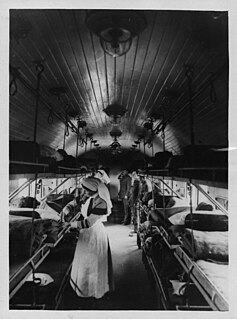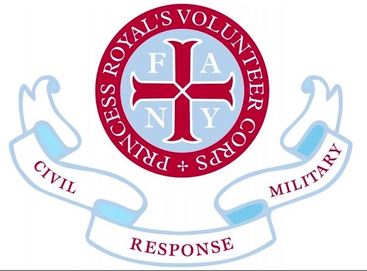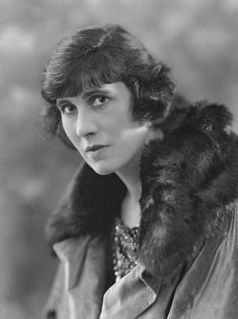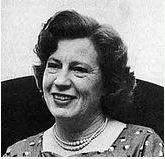Related Research Articles

In Great Britain just before World War I there were 24 million adult women and 1.7 million worked in domestic service, 800,000 worked in the textile manufacturing industry, 600,000 worked in the clothing trades, 500,000 worked in commerce, and 260,000 worked in local and national government, including teaching. The British textile and clothing trades, in particular, employed far more women than men and were regarded as 'women's work'. During WWII, in total, 6 million women were added to the workforce in what resulted as a major cultural shift. With the men fighting in the wars, women were needed to take on responsibilities that the men had to leave behind.

The First Aid Nursing Yeomanry is a British independent all-female registered charity formed in 1907 and active in both nursing and intelligence work during the World Wars. Although its members wear a military style uniform it is not part of the Regular or Reserve Army.

Grace Emily Ogot was a Kenyan author, nurse, journalist, politician and diplomat. Together with Charity Waciuma she was the first Anglophone female Kenyan writer to be published. She was one of the first Kenyan members of parliament and she became an assistant minister.
Victor Marra Newland, was an Australian army officer and politician. He served in the Second Boer War and with the King's African Rifles in the First World War, was decorated for his service in each, and retired with the rank of major. He was formerly a member of the Legislative Council of British East Africa, and in 1933 became the representative for North Adelaide in the South Australian House of Assembly.

Margaret Wambui Kenyatta was a Kenyan politician. She was the daughter of the first President of Kenya, Jomo Kenyatta, and his wife Grace Wahu. She served as the Mayor of Nairobi from 1970 to 1976 and as Kenya's Permanent Representative to the United Nations from 1976 to 1986.. She was thereafter appointed as a Commissioner with the Electoral Commission of Kenya from 1992 to 2002.
June Knowles, better known by her pen name Elizabeth Watkins, was an English author, brought up in Kenya, where her parents - Oscar Ferris Watkins (1877–1943) and Olga Florence Watkins (1889–1947) - had started a coffee farm outside Nairobi, and later educated at St Anne's College, Oxford.

Flora Sandes was a British woman who served as an officer of the Royal Serbian Army in World War I. She was the only British woman officially to serve as a soldier in WWI. Initially a St. John Ambulance volunteer, she travelled to the Kingdom of Serbia, where she was welcomed and formally enrolled in the Serbian army. She was subsequently promoted to the rank of Sergeant major, and, after the war, to Captain. She was decorated with seven medals.
Julia Pirie was a British spy working for MI5 from the 1950s through her retirement in the 1990s. She was initially recruited to and primarily involved in spying on the Communist Party of Great Britain. In 1978, as that organisation had lost power, she withdrew from it and focused on other roles.

Hilda Mary Moore was a British stage and film actress. Hilda Moore served in France in WW1 with the FANY British Convoy. The FANY were the first women to drive officially for the British Army. They also worked for the Belgian and French Armies.
Olive Mudie-Cooke was a British artist who is best known for the paintings she created during the First World War. Mudie-Cooke served as an ambulance driver in both France and Italy during the conflict and these experiences were reflected in her artwork.

Muriel Thompson was a decorated Scottish World War I ambulance driver, racing driver and suffragist.
The history of nursing in the United Kingdom relates to the development of the profession since the 1850s. The history of nursing itself dates back to ancient history, when the sick were cared for in temples and places of worship. In the early Christian era, nursing in the United Kingdom was undertaken by certain women in the Christian Church, their services being extended to patients in their homes. These women had no real training by today's standards, but experience taught them valuable skills, especially in the use of herbs and folk drugs, and some gained fame as the physicians of their era. Remnants of the religious nature of nurses remains in Britain today, especially with the retention of the job title "Sister" for a senior female nurse.

Eugenie Dorothy Hughes, was a Kenyan architect, politician, social reformer and disability activist. She founded the Kenyan Council of Social Services and served as the head of the Sports Association for the Disabled. As the first East African female architect, she owned her own firm and is best known for her design of the Cathedral of the Holy Family in Nairobi.
Sir Michael Blundell was a Kenyan farmer and politician who served as a member of the Legislative Council from 1948 until 1963, and as Minister of Agriculture in two spells between 1955 and 1962.
Sir Wilfrid Bowen Havelock was a Kenyan politician, described in a 2003 obituary in the Daily Telegraph as "the last of the white leaders responsible for ensuring the smooth African accession to power".
Eunice Muringo Kiereini is a retired nurse who was Kenya's Chief Nursing Officer from 1968 to 1986, with responsibility for overseeing and developing nursing in Kenya after independence. She has served in many different health organisations, at home and abroad, and was the first African president of the International Council of Nurses (ICN).
Anisia Karlo Achieng Olworo is a South Sudanese MP and women's rights activist.
Evelyn May Cridlan was a British nurse and ambulance driver in the First World War. She was awarded the Military Medal in 1918 while serving in France as a driver in the First Aid Nursing Yeomanry (FANY.). Her commendation noted the award was for "performing most efficient service in conveying the wounded to hospital during a bombing raid." She was also one of the earliest members of the Women's Engineering Society and the first woman to be elected a member of the Military Medalist's League, serving as a committee member until she became ill. On her death she left a legacy bequest of £100 to the Women's Transport Service.
Hamilton Frederick Ward was a British settler in Kenya, and an early member of the Legislative Council of Kenya.
Grace McDougall or Grace Alexandra Smith or Grace Ashley-Smith was a British officer of the First Aid Nursing Yeomanry (FANY). She is credited with reinventing that organisation and with being the first khaki bride.
References
- ↑ Elizabeth Watkins, Olga in Kenya: Repressing the Irrepressible, Britwell Books, 2005, ISBN 1905203748, 9781905203741, p.215
- 1 2 3 4 5 6 "Lady Sidney Farrar". Old Africa Magazine.
- 1 2 3 4 Malcolm Page, King's African Rifles: A History, Pen and Sword, 30 Mar 2011, p.59
- ↑ "Women in Kenyan Politics". The Star.